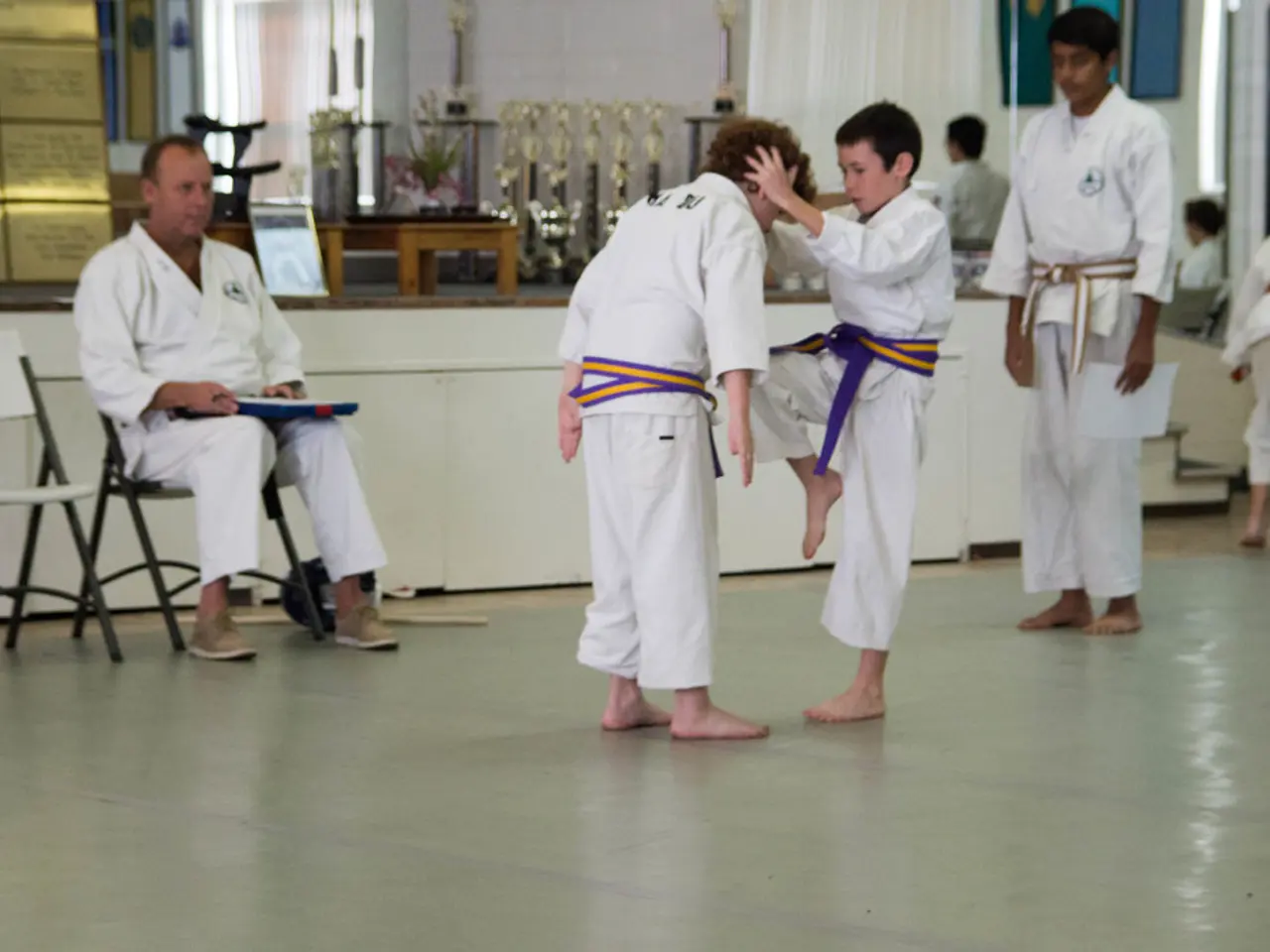Group Study for Children: Discovering Knowledge Collectively at Museo Dei Bambini
=======================================================================================
In the world of play and learning, collaboration takes centre stage, transforming simple activities into engaging experiences that foster cognitive and emotional growth in young minds. This approach, rooted in the theory of social constructivism, has been shown to positively impact children's development, preparing them for future challenges.
Social constructivism, a theory pioneered by Russian psychologist Lev Vygotsky, posits that cognitive development is shaped through social interaction. This theory is evident in the way projects with Mega Magnet Tiles evolve when multiple children join, transforming from solo walls into towering skyscrapers and spaceships.
Collaborative construction encourages children to negotiate structure size, symmetry, and role-sharing. Similarly, in the museum Museo dei Bambini, collaborative learning is fostered by creating opportunities for shared challenge, joint decision-making, and peer mentorship.
Research consistently demonstrates that social learning enhances both cognitive and emotional outcomes. For instance, a 2015 meta-analysis found that collaborative learning leads to higher achievement and deeper understanding compared to solitary learning.
On the cognitive side, collaborative learning enhances children’s ability to critically evaluate and apply knowledge through peer knowledge exchange. It encourages inquiry-based learning, motivating children to ask their own questions and discover answers independently, which stimulates autonomous learning and selective attention.
Moreover, collaborative learning develops metacognitive thinking skills and cooperative learning attitudes, which improve problem-solving and critical thinking.
Regarding emotional development, collaborative learning helps build essential social skills such as emotion expression, recognition, regulation, and social interaction. These skills contribute to improved emotional intelligence in children.
Programs integrating collaborative learning show measurable improvements in children's emotional intelligence domains, including emotion expression and social skills, indicating emotional growth alongside cognitive benefits.
Collaborative learning also supports social-emotional well-being by promoting cooperation and shared goals among students, enhancing their ability to work together effectively.
Spontaneous moments of generosity, such as one child handing a ball to another at the Wall Run or stepping aside to let someone else try, are observed in the museum setting. These acts of kindness foster a sense of empathy and respect among the children, further enhancing their emotional development.
In conclusion, collaborative learning creates a holistic developmental environment where children’s cognitive capacities and emotional competencies develop together. This approach, when integrated into educational settings, prepares children for future societal and educational challenges.
Educators are encouraged to embrace collaborative and inquiry-based methods, providing secure, stimulating environments that nurture both cognitive and emotional skills in children. By doing so, we are not only equipping them with the knowledge they need to succeed, but also fostering the capacity to think together, solve problems, and respect multiple perspectives.
- In the realm of learning and personal growth, the Museo dei Bambini cultivates collaboration as a central principle, fostering opportunities for shared challenge, joint decision-making, and peer mentorship, aligning with the theory of education and self-development, enhancing both their cognitive and emotional growth.
- Art, a fundamental aspect of learning, is one of the enticing elements in the Museo dei Bambini that promotes personal growth by encouraging children to learn and create art together, thereby fostering collaborative learning and emotional development.
- By integrating collaborative learning into the Museum's curriculum, children not only benefit from increased cognitive achievement and deeper understanding, but also from improving their emotional intelligence and social skills, making them more adept at working together effectively towards personal growth and success.




